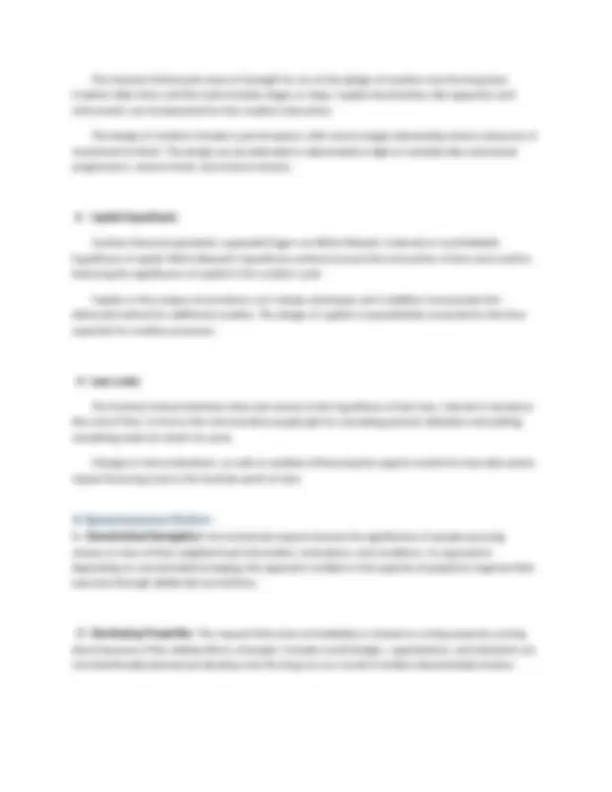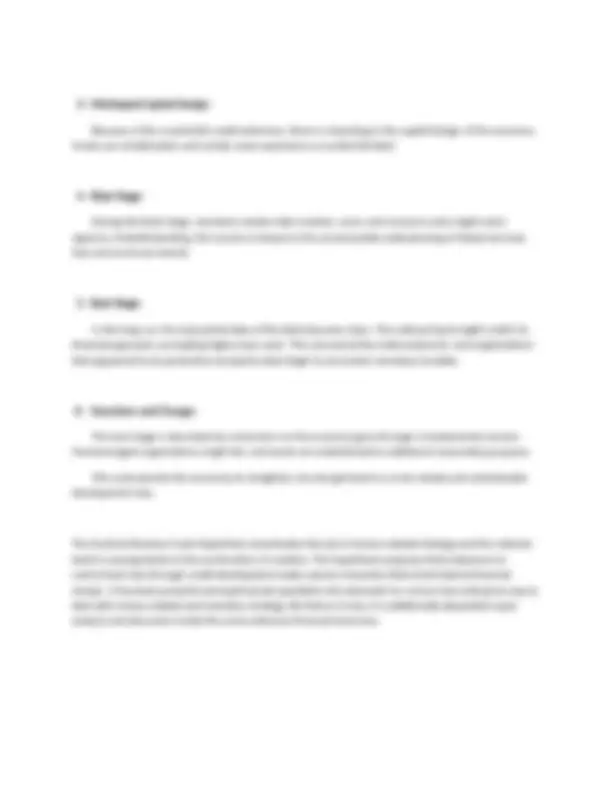





Study with the several resources on Docsity

Earn points by helping other students or get them with a premium plan


Prepare for your exams
Study with the several resources on Docsity

Earn points to download
Earn points by helping other students or get them with a premium plan
Community
Ask the community for help and clear up your study doubts
Discover the best universities in your country according to Docsity users
Free resources
Download our free guides on studying techniques, anxiety management strategies, and thesis advice from Docsity tutors
WE PROVIDE THE AUSTRAIN SCHOOL THEORY WITH QUESTION AND ANSWER.
Typology: Study notes
1 / 5

This page cannot be seen from the preview
Don't miss anything!




The Austrian School is a heterodox school of financial idea that stresses the job of individual activity, subjectivity, and the market cycle. It started in the late nineteenth 100 years with financial analysts, for example, Car l M e n g e r, E u gen von B ö h m -B a w e r k, and Friedrich von W I e ser.
possibility that worth is intrinsically emotional and reliant upon individual inclinations and discernments. This idea diverges from hypotheses that recommend evenhanded or inborn qualities. In financial matters, subjectivism is a critical precept of the Austrian School, as referenced prior. As indicated by the Austrian point of view, financial worth is certainly not an intrinsic property of labor and products however still up in the air by the inclinations and emotional decisions of people. This implies that worth is molded by private preferences, needs, and wants. Subjectivism in financial matters is firmly connected with the idea of negligible utility, which is the extra fulfillment or advantage that an individual gets from consuming an extra unit of a decent or administration. The Austrian financial experts, beginning with Carl Menger, contended that still up in the air at the edge, in view of the emotional evaluation of the utility of the last unit consumed. Notwithstanding its job in monetary idea, subjectivism is a more extensive philosophical idea that stretches out to different disciplines. In epistemology, for instance, subjectivism alludes to the possibility that information is affected by individual viewpoints and encounters. In morals, subjectivism holds that ethical decisions depend on private sentiments and mentalities. In general, subjectivism challenges the thought of goal or widespread qualities and stresses the significance of individual viewpoints in figuring out monetary peculiarities and human way of behaving.
Systemic independence is a rule in sociology and financial matters that declares that the activities and ways of behaving of people are the key units of examination. This approach places that any friendly peculiarity or total result can be better perceived by looking at the activities, inspirations, and choices of
individual entertainers. As such, the social world is viewed as the consequence of the cooperations of people. 1-Center around People : The beginning stage for investigation is the individual, and clarifications of social peculiarities are gotten from figuring out the activities and selections of people. 2- Comprehensive Getting it : While strategic independence underlines the activities of people, it doesn't disregard social designs or foundations. All things considered, it tries to make sense of these designs as new properties emerging from individual communications. 3- Dismissing Comprehensive quality : Strategic independence rejects clarifications that treat society or gatherings as elements with free inspirations and purposes. All things considered, it demands that any clarification ought to eventually be reducible to individual activities. 4- Emotional Components : Strategic independence frequently lines up with an emotional comprehension of significant worth and decision, proposing that inclinations, convictions, and wants are fundamental parts in making sense of human way of behaving. This approach is especially connected with the Austrian School of Financial matters, as well similarly as with some old style liberal and freedom advocate points of view. It remains as opposed to approaches that stress aggregate substances, like social classes or gatherings, as having free inspirations or goals.
1- Time Inclination: Austrian financial analysts underscore the job of time inclination in human navigation. Time inclination alludes to the possibility that people for the most part favor labor and products in the present over similar labor and products later on. Time inclination is abstract and shifts among people. Certain individuals might make some high memories inclination, esteeming quick satisfaction more than potential compensations, while others might make some lower memories inclination, being more able to postpone utilization for more prominent future advantages. 2- Creation Design and Capital:
3- Imperceptible Hand System : The idea imparts likenesses to Adam actually the "undetectable hand," where people seeking after their personal circumstance unexpectedly add to the general prosperity of society for Smith. In a suddenly requested framework, individual activities lead to results that are not unequivocally coordinated by any focal power. 4- Market Cycles : The market is many times seen as a perfect representation of unconstrained request. Costs, creation choices, and asset not set in stone through the decentralized communications of purchasers and venders. The market, in this view, effectively organizes the assorted and scattered data of people. 5- Social Development : Past financial cycles, unconstrained request can be applied to social advancement. Language, customs, and accepted practices are instances of social peculiarities that can arise immediately as people cooperate and adjust to their environmental elements. The idea of unconstrained request has been powerful in the advancement of old style liberal and freedom advocate thought. That's what it recommends, under specific circumstances, people can make and keep social control without the requirement for broad government intercession. Notwithstanding, it's essential to take note of that the idea doesn't suggest a shortfall of rules or establishments; rather, it underscores the decentralized and deliberate nature of social coordination.
1- Financing costs and Credit Extension: The Austrian market analysts, eminently Ludwig von Mises and Friedrich Hayek, contend that business cycles are principally determined by vacillations in the cash supply and financing costs. In the beginning phases of a period of prosperity, national banks or other monetary foundations may falsely bring down loan costs and extend credit through money related arrangement. 2- Mali investment: The lower financing costs energize expanded acquiring and interest in different areas of the economy. Nonetheless, not all ventures are reasonable or monetarily feasible in the long haul. The development of credit prompts what the Austrians expression "malinvestment" — speculations that could never have been made under ordinary economic situations.
3- Misshaped Capital Design: Because of the counterfeit credit extension, there is a bending in the capital design of the economy. Assets are misallocated, and certain areas experience a counterfeit blast. 4- Blast Stage: During the blast stage, monetary markers like creation, work, and resource costs might seem vigorous. Notwithstanding, this success is based on the unreasonable underpinning of falsely low loan fees and ma linves tments. 5- Bust Stage: In the long run, the impractical idea of the blast becomes clear. The national bank might switch its financial approach, prompting higher loan costs. This uncovered the malinvestments, and organizations that appeared to be productive during the blast begin to encounter monetary troubles. 6- Downturn and Change: The bust stage is described by a downturn as the economy goes through a fundamental revision. Overleveraged organizations might fail, and assets are redistributed to additional reasonable purposes. This cycle permits the economy to straighten out and get back to a more steady and maintainable development way. The Austrian Business Cycle Hypothesis accentuates the job of money related strategy and the national bank in causing bends in the construction of creation. The hypothesis proposes that endeavors to control loan fees through credit development make uneven characters that at last lead to financial slumps. It has been powerful among financial specialists who advocate for a more free enterprise way to deal with money related and monetary strategy. Be that as it may, it is additionally dependent upon analysis and discussion inside the more extensive financial local area.